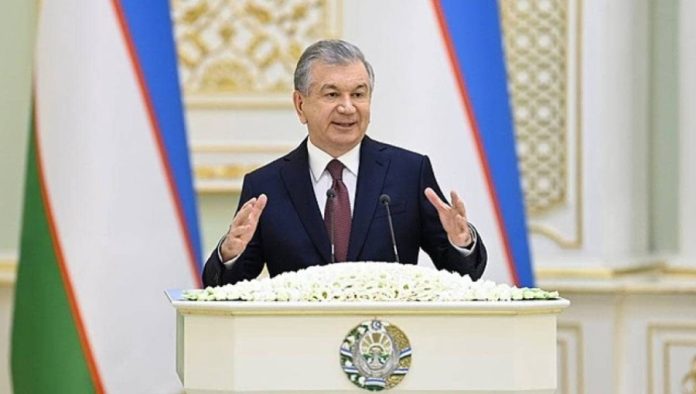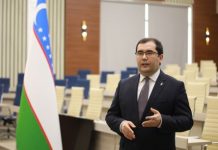On July 3-4, the President of Uzbekistan paid a working visit to the capital of Kazakhstan and participated in the Shanghai Cooperation Organization summit
On July 3-4, the President of Uzbekistan paid a working visit to the capital of Kazakhstan and participated in the Shanghai Cooperation Organization summit.
SCO — is a regional international association established in 2001, with Uzbekistan among its founding members alongside Kazakhstan, China, Kyrgyzstan, Russia, and Tajikistan. Presently, the SCO comprises nine member countries, with three countries serving as observers and 14 states engaging as dialogue partners. This underscores the SCO’s growing influence in international politics amid challenging geopolitical conditions over the years of its existence.
Currently, the combined territory of SCO countries exceeds 34 million square kilometers, representing over 60% of Eurasia’s landmass. With a total population surpassing 3 billion people, approximately 42% of the global population resides within SCO member states. Moreover, the collective economy of SCO countries constitutes more than 24% of the world economy.
The SCO aims to strengthen mutual trust, friendship, and good neighborliness among member states, fostering multidisciplinary cooperation to ensure peace, security, and stability in the region. It strives to promote a new democratic, fair, and rational political and economic international order, and collaborates to combat terrorism, separatism, extremism, drug and weapons trafficking, and other transnational crimes. Member countries endorse effective regional cooperation based on international law principles.
The central governing body of the SCO is the Council of Heads of State, responsible for setting the strategy, priorities, and development prospects of the organization’s multifaceted cooperation and activities. This council makes critical decisions aimed at achieving the SCO’s goals and objectives, addresses urgent international issues and interactions with other international organizations and states, decides on membership expansion, and oversees internal structural and operational matters of the SCO and its permanent bodies.
The Shanghai Cooperation Organization (SCO) comprises several key bodies: the Council of Heads of Government (Prime Ministers), the Council of Foreign Ministers, the Meeting of Heads of Ministries and Departments, the Council of National Coordinators (CNC), the Regional Anti-Terrorism Structure (RATS), the Secretariat, the Business Council, and the Interbank Association.
The Secretariat, led by the Secretary-General, serves as the SCO’s executive body, appointed on a rotational basis by the Council of Heads of State (CHS) from among citizens of member states for a three-year term. Since January 1, 2022, Zhang Ming of the People’s Republic of China has held this position, succeeding the previous representative from Uzbekistan.
Additionally, the SCO Forum acts as an unofficial dialogue mechanism, including one scientific institution from each member state designated as a national research center. Recently, Uzbekistan hosted the 19th meeting of the SCO Forum in Tashkent, chaired by Uzbekistan’s Institute of Strategic and Interregional Studies.
Uzbekistan has actively engaged in the SCO, chairing the organization four times: in 2003-2004, 2009-2010, 2015-2016, and most recently in 2021-2022. It has spearheaded initiatives such as establishing the SCO Regional Anti-Terrorist Structure in Tashkent in 2004, introducing the Meetings of Security Council Secretaries, and launching a mechanism for granting observer status. The SCO Center for Public Diplomacy in Tashkent enhances intercultural and humanitarian dialogue within the SCO framework.
Since 2017, Uzbekistan has implemented 75 out of 91 initiatives aimed at enhancing political, economic, and innovative cooperation within the SCO. At the Samarkand summit on September 15-16, 2022, attended by leaders of 14 participating countries, observers, and international organization heads, significant decisions were made. These included signing a Memorandum of Commitments with Iran for its path to full SCO membership, finalizing the status of Egypt, Qatar, and Saudi Arabia as dialogue partners, and initiating Belarus’s full membership process. Moreover, SCO’s cooperation expanded with Bahrain, the Maldives, the UAE, Kuwait, and Myanmar seeking dialogue partner status.
Memorandums of understanding were signed with the League of Arab States, UNESCO, and UNESCAP during the summit. The president of Uzbekistan put forward 16 new initiatives aimed at bolstering cooperation across various sectors during this summit.
The SCO summit in Astana introduced new initiatives that will further enrich cooperation and advance peace and prosperity among SCO member nations.
Dunyo IA

















